MARCH 30, 2020
Last Friday, Congress passed a $2 trillion stimulus bill called the CARES Act that has been designed to distribute capital quickly to businesses, individuals, federal agencies, and state and local governments who have been particularly hard hit by COVID-19.
Several of our clients and friends with small businesses have asked what is in the CARES Act that would help them, so we studied up and created the following summary of those specific provisions.
If you are a business owner, we urge you to do apply for these benefits as soon as possible. These funds are first come, first served. If you are not a small business owner, this information may still be useful to share with those businesses and non-profits that you believe are an important part of your community.
We hope that you and your families are staying safe, healthy, and perhaps even finding some silver linings as we are all compelled to slow down and take stock of what’s most important in our lives. As a team, we close out each week on a videoconference with a lightning round of silver linings we each have found in our various approaches to sheltering-in-place. So far, there has been no struggle to find them.
—
SUMMARY OF GOVERNMENT RELIEF FOR SMALL BUSINESSES AND NON-PROFITS
Paycheck Protection Program
This is one of the largest sections of the CARES Act and is the most important provision for most small businesses. The expectation is that applications for this program will be available by the end of this week and that funds will be distributed relatively quickly. We recommend you work with your existing bank, if possible, as they will likely serve you better than if you went to a lender who you don’t already have a relationship with.
Who is eligible?
Small businesses with fewer than 500 employees
501(c)(3) non-profits with fewer than 500 workers
Self-employed persons, sole proprietors, freelancers and gig economy workers may apply too.
How much can you borrow?
Lenders will generally be able to issue SBA 7(a) small business loans of 2.5 times the average monthly payroll costs over the previous year (capped at $100,000 per person) up to a maximum of $10M.
The proceeds of such loans may be used to pay a variety of costs, including:
Salaries, commissions and other payroll related costs
Group health insurance premiums and other healthcare costs
Rent and/or mortgage interest (excluding amounts pre-paid)
Utilities
What are the terms?
Loans will have an interest rate no higher than 4% and can have a term of up to 10 years. No personal guarantee or collateral is required for the loan. Lenders are expected to defer fees, principal and interest for no less than six months and no more than one year.
The most beneficial part of this program is the possibility of having all or a portion of the loan forgiven.The amount eligible to be forgiven is the amount spent during the first 8 weeks after the loan is made on the items mentioned above.
The catch is that in order to have amounts forgiven, the business must maintain the same number of employees (equivalents) from February 15, 2020 through June 30, 2020 as it did during either the same period in 2019 or from January 1, 2020 until February 15, 2020. To the extent this requirement is not met, the amount eligible for forgiveness will be reduced, ratably. Additional reductions in the amount to be forgiven will be incurred if employees with under $100,000 of compensation have their compensation cut by more than 25% as compared to the most recent quarter. Any debt forgiven pursuant to this provision is not included in taxable income for the year.
Deferral of Payment of Payroll Taxes
To preserve cash and liquidity during a period of reduced income, businesses and self-employed individuals can delay their payroll tax payments and pay them over the next two years; 50% must be paid by the end of 2021 and the remaining 50% must be paid by the end of 2022. Contact your payroll provider for additional information.
Note: This provision is not available for employers who have had debt forgiven by the CARES Act.
Net Operating Loss Rule Are Loosened
If your business had a Net Operating Loss (NOL) in a tax year beginning in 2018, 2019, or 2020, that NOL can be now be carried back five years and applied against income in those years. This should allow companies to reduce prior years’ tax bills, allowing them to claim refunds of amounts previously paid to provide further liquidity to get them through the COVID-19 crisis. Contact your tax preparer if this situation applies to you.
Economic Injury Disaster Loans
This provision is NOT part of the CARES Act, it was put in place when the state of emergency for Covid-19 was first issued and is still available. It allows small businesses and non-profits to borrow up to $2M at interest rates of 3.75% and 2.75% respectively. You can apply for these loans now on the SBA website, https://www.sba.gov/.
It’s important to note that you can’t double dip and get loans under the Paycheck Protection Program and the Economic Injury Disaster program to cover the same expenses. However, you can get loans under each program as long as they are used for different expenses.
We hope this information is helpful and we are here to answer questions, serve as a sounding board and help where we can.

